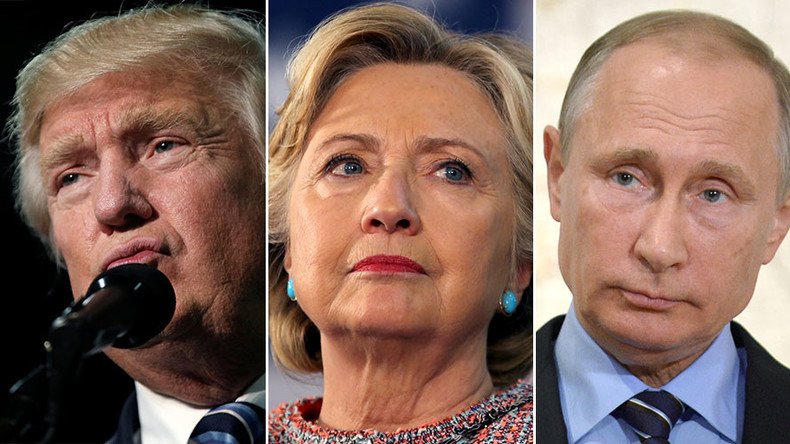Millennials equally dislike Trump, Clinton & Putin – but would vote socialist

A new study surveying American attitudes towards capitalism, socialism or communism found younger Americans preferred George W. Bush and Bernie Sanders than Donald Trump, Hillary Clinton and Vladimir Putin. Nearly half of Gen Z would vote for a socialist.
Over half of Americans preferred George W. Bush and Bernie Sanders among living political figures to Hillary Clinton (41 percent disapproved of her), Donald Trump (whose negative rating was 49 percent), and Vladimir Putin (46 percent negative), according to a new study titled, “Annual Report on US Attitudes towards Socialism.”
Surge for Communism, Socialism, millennials pick Marx over Bible - a @BernieSanders bounce? @VoCommunismhttps://t.co/WySY4YPx0d@DCExaminerpic.twitter.com/kAK3Ayjdzl
— Paul Bedard (@SecretsBedard) October 17, 2016
The study’s findings came from polling 2,300 Americans aged 16 and above for their opinions on differing political economic systems, and their respective leaders.
As for the general economy, 53 percent of Americans said the country’s economic system works against them, while four out of 10 Americans call for a “complete change” of America’s economic system to ensure highest earners pay their fair share of tax.
Feel The Donald?: #Trump appeals to #Bernie supporters in anti-Clinton speech https://t.co/Pad8n6krYKpic.twitter.com/VrEl6lVLHV
— RT America (@RT_America) June 22, 2016
Nearly half of Generation Z (45 percent) said they would vote for a socialist, while one in five (21 percent) said they would vote for a communist.
However, many millennials are unfamiliar with communist leaders Mao Zedong (42 percent); Che Guevara (40 percent); Stalin (18 percent); Lenin (33 percent); and oddly Putin (not a communist) at 18 percent. Of those millennials familiar with Vladimir Lenin, 25 percent have a favorable view of him.
Among the study’s findings, 26 percent of Americans and 32 percent of millennials think more people were killed under George W. Bush than Joseph Stalin. Nearly seven in 10 Americans believed more people were killed under Hitler than Stalin.
Obama dragging Russia into US presidential election to manipulate American voters for the benefit of Hillary Clinton https://t.co/Wsv7ik1Chr
— NotForTheWealthy (@NotForWealthy) October 12, 2016
The poll was carried out by the Victims of Communism Memorial Foundation, a nonprofit to educate this generation and future generations about the ideology, history, and legacy of communism.
With just five self-described communist countries in the world – China, Cuba, Laos, North Korea and Vietnam – younger Americans had different views of communism and socialism than their elders.
Roughly half of millennials (55 percent) believe communism was and still is a problem – compared with 80 percent of baby boomers and 91 percent of elderly Americans.
While 57 percent of all Americans have a “very unfavorable” view of communism, that view is shared by just 37 percent of millennials and 38 percent of Generation Z.
Party foul: Voters defecting from their traditional sideshttps://t.co/we25XXtGY9pic.twitter.com/3UQ6UGMqxp
— RT America (@RT_America) July 12, 2016
The quote from Karl Marx which underpins Marxist philosophy, “From each according to his abilities, to each according to his needs,” resonated with 64 percent of Americans.
But 68 percent of Americans were supportive of Milton Friedman’s quote “A society that puts equality before freedom will get neither. A society that put freedom before equality gets a high degree of both.” It was Friedman’s theories about the free market that underpinned the Ronald Reagan administration and that belief that wealth would “trickle down.”
Among those surveyed, the majority said they were moderates ideologically, 48 percent said they were interested in news and public affairs most of the time, 28 percent were born-again Christians, 51 percent were female, 66 percent were white, 32 percent were Democrat, 25 percent were Independent and 24 percent were Republican; while 66 percent were registered voters. Of those polled, 42 percent had a high school education or did not finish high school, while 31 percent at least started a college education.












